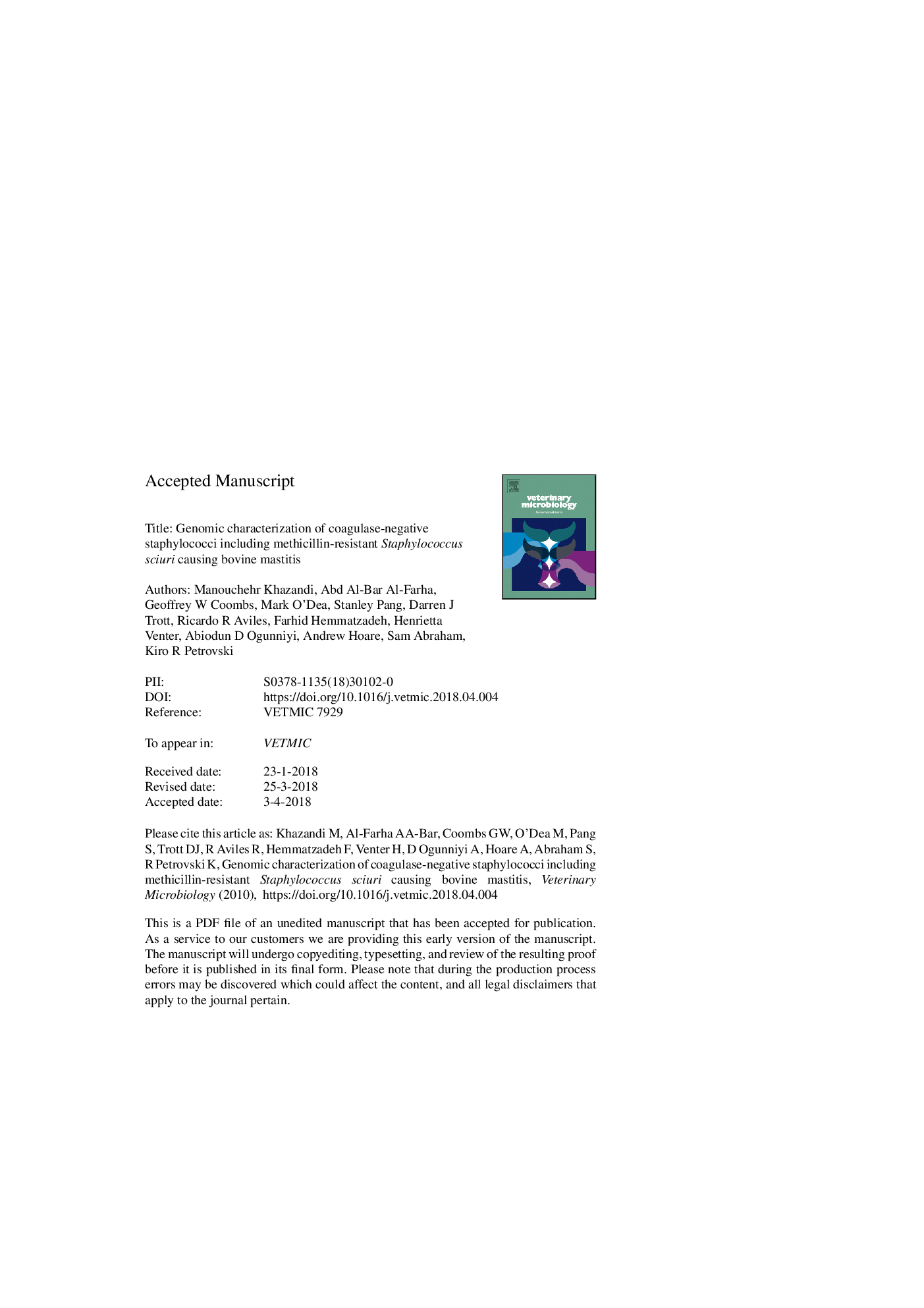| Article ID | Journal | Published Year | Pages | File Type |
|---|---|---|---|---|
| 8505315 | Veterinary Microbiology | 2018 | 20 Pages |
Abstract
Methicillin-resistant coagulase-negative staphylococci (MRCoNS) have recently emerged as a significant cause of bovine mastitis worldwide. Here we describe the isolation of MRCoNS from cases of bovine mastitis from a single dairy farm in Australia. Fourteen CoNS isolates were identified as MRCoNS on the basis of having an oxacillin MIC of â¥0.5â¯Î¼g/mL. The isolates were speciated as S. chromogenes (nâ¯=â¯1) S. fleurettii (nâ¯=â¯1), S. haemolyticus (nâ¯=â¯2), S. sciuri (nâ¯=â¯5), S. simulans (nâ¯=â¯1) S. succinus (nâ¯=â¯2) and S. xylosus (nâ¯=â¯2). Five of the isolates (S. fleuretti, S. haemolyticus S. sciuri and two S. succinus) were mecA-positive. We also detected a previously described S. sciuri mecA homolog in four oxacillin-resistant S. sciuri isolates. The remainder of the putative MRCoNS did not contain any mecA-related resistance determinants in their genomes. Comparative genomic analysis of three previously published S. sciuri isolates, from humans, a squirrel and a cereal crop (rice), and a representative isolate from our study demonstrated clustering and a high degree of genetic homogeneity (>95%), suggesting S. sciuri has low host specificity. In conclusion, CoNS, in particular S. sciuri, may act as a reservoir for SCCmec elements that can easily be spread between different host species by direct cross-infection.
Keywords
Related Topics
Life Sciences
Agricultural and Biological Sciences
Animal Science and Zoology
Authors
Manouchehr Khazandi, Abd Al-Bar Al-Farha, Geoffrey W. Coombs, Mark O'Dea, Stanley Pang, Darren J. Trott, Ricardo R. Aviles, Farhid Hemmatzadeh, Henrietta Venter, Abiodun D. Ogunniyi, Andrew Hoare, Sam Abraham, Kiro R. Petrovski,
